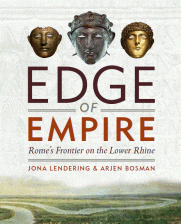The last words of famous people are an interesting subject for a book. Not a book full of quotes – that already exists – but a book that explains why some of them are so well-known. Some are inspiring indeed, like George Harrison’s “love one another”, which summarizes his career pretty adequately. Others are interesting because we don’t know what was meant: did Von Stauffenberg shout something about sacred Germany or secret Germany? Was Goethe seeing the light (“mehr Licht”) or did he say that his bed was uncomfortable (“mir liegt”)? Some were never spoken at all: the man who noted that Casanova had declared he had lived as a philosopher but died as a Christian, was not present – why did he invent it?
We seem to love emotions (Caesar’s disappointed “You too, my child?”) and humor, and are willing to alter the story a bit to create a joke: Vespasian’s last words were not that he feared becoming a god (more…). On the other hand, we do not like obscenities. Although many people believe otherwise, Leonidas’ remark – although technically not his last words – that that Xerxes could “come and take it” did not mean that the great king ought to fight to obtain the Spartan’s weapons (more…), and Socrates’ remark about a cock was not just about a sacrifice (more…).
And sometimes, people really make a show of it, like Polemo, the great sophist, or concert orator. These people were incredibly popular and knew how to manipulate the audience by acting as if the world was their stage, all nations were their fans, and they were the greatest actors alive. When you read about them in Philostratus’ Lives of the Sophists, you get the impression that they were collectively suffering from a histrionic personality disorder.
Now Polemo had had an illness for quite some time already when he ordered his tomb to be build outside the Syrian Gate of Laodicea. When it was almost finished, he announced his approaching death and went to the tomb, followed by a great many people, who saw him entering his tomb. There, he ordered the mason to finish his job: he wanted to die of inedia, not eating and drinking any more. His last words, no doubt carefully prepared, were that the mason ought to hurry a bit, because Polemo did not want the sun to see him reduced to silence.
The place where this pathetic incident took place, is now a parking lot.





 Posted by Jona Lendering
Posted by Jona Lendering 
 Subscribe to feed
Subscribe to feed